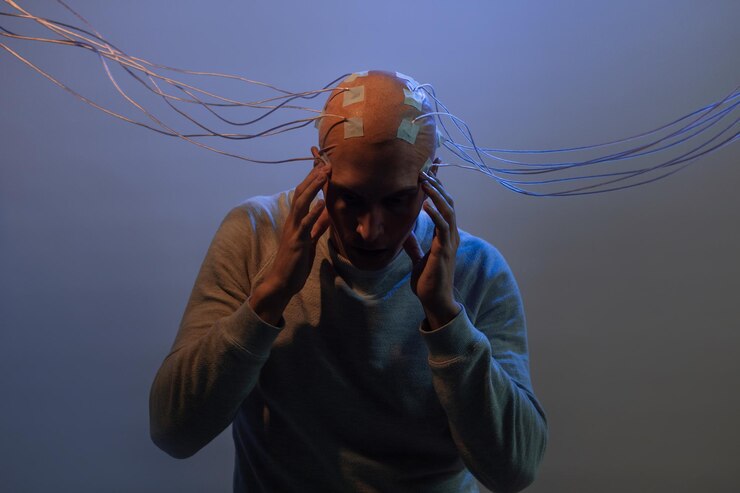Everything You Need To Know About Impulse Control Disorders
Everyone has a strong impulse at one point or another. However, individuals with impulse control disorders cannot control their impulses and often give in to them. Depending on the impulse, this can put the individual or others in harm’s way. Read on to learn more about impulse control disorders, including what they are, which forms they take, their causes, and potential treatment options.
What Are Impulse Control Disorders?

Impulse control disorders are defined by the inability to control or regulate a particular impulse. This can include hostile emotions or destructive behavior. The impulse is often unhealthy and can harm the individual or others around them. These behaviors are not accepted by societal standards and may result in law-breaking and even violence.
However, the person with impulse control disorder cannot manage their impulsive behavior or emotions well. In some cases, it may be impossible. This is what makes impulse control disorders so dangerous and difficult to treat. It is not that the person refuses to improve; it is that they have great difficulty in doing so.
5 Common Types Of Impulse Control Disorders

There are five types of impulse control disorders listed in the Diagnostic and Statistical Manual of Mental Disorders (DSM-5). However, keep in mind that many other behaviors can be considered impulse control conditions (such as pathological gambling) even though they are not official disorders.
Any behavior that is consistent, impulsive, and extremely difficult to ignore or resist may count as an unspecified impulse control disorder.
1. Kleptomania
Individuals with kleptomania will have uncontrollable impulse control disorders to steal objects, even if they do not need them. In fact, the act of stealing is not about the objects themselves.
The individual steals to satisfy their impulse and may even throw the object out after stealing it. Most objects that are stolen are items that are meaningless, unnecessary, or lack value.
2. Pyromania
An individual with pyromania struggles to resist the impulse of setting fires. They may experience incredible anxiety, stress, or tension that can only be released by sparking a flame.
Those with pyromania rarely aim to hurt anyone or cause damage by starting fires; they only do it to release the tension and serve their impulses.
3. Oppositional Defiant Disorder
Oppositional defiant disorder (ODD) is an impulse control disorder found primarily among children and adolescents. Children with this disorder have difficulty controlling their behaviors and emotions.
They will often have persistent negative emotions and behaviors, including aggressiveness, bitterness, and vindictiveness. They will constantly be defiant, irritable, and disagreeable, especially when told to do something they don’t want to do. Most children with ODD first develop it around the ages of 5 to 10, but behaviors and symptoms usually ease as they age.
4. Intermittent Explosive Syndrome
IED (Intermittent Explosive Disorder) is also characterized by impulses due to consistent anger or aggression. However, the resulting behaviors are often more violent or explosive than ODD.
An individual with impulse control disorders will throw sudden tantrums, arguments, and fights due to their impulsive anger and rage. Many individuals will become violent or destroy property during their outbursts.
5. Conduct Disorder
Conduct impulse control disorders are distinguished by impulsive behavior that violates others’ boundaries or societal norms. Behaviors common with conduct disorder include violent behavior, the trashing, and throwing of property, theft, or consistent breaking of rules or laws.
As with ODD, conduct disorder is primarily diagnosed in children, and symptoms can start as soon as pre-school. Adults who exhibit similar behavior are often diagnosed with antisocial personality disorder.
2 Primary Causes Of Impulse Control Disorders
Researchers have not found a clear cause of impulse control disorders. However, it seems that both genetics and environment play a role in their development.
- Children who have parents living with conditions such as schizophrenia, personality disorders, mood disorders, or substance abuse are more likely to develop impulse control disorders.
- Furthermore, living in an abusive or unstable home or having low socioeconomic status seem to be contributing factors.
What Are The Available Treatment Options?
Impulse control disorders are notoriously difficult to treat. Once developed, it can be near impossible for an individual to resist their impulses and improve their behavior.
1. Therapy:
Therapy is the primary tool to prevent and treat impulse control disorders. A therapist may help the individual work through their impulsive thoughts and emotions and find healthier ways to react.
This treatment should be started as soon as possible, as the longer the delay, the harder it is for the treatment to work.
2. Changing Your Parenting Style:
If you are raising a child that is showing signs of developing impulse control disorders, change your parenting style to discourage this behavior immediately. Do not praise or use positive reinforcement for such behavior.
Teach your children to express their emotions in a healthy way that does not involve harming themselves or others. You may also want to utilize therapy early on to prevent the development of the disorder further.
Final Thoughts
Impulse control disorders are serious conditions that are difficult to treat. However, if no effort is made to curb the behavior or treat the conditions, the individual may harm themselves or others. If you have a loved one with an impulse control disorder, discuss the issue with a psychiatric professional. They will know the best course for treatment and management of the symptoms.
If you are interested in learning more about impulse control disorders and managing and treating them, click here for further reading.
Read Also:
- What Are Autoimmune Disorders? Symptoms, Treatment, And Prevention
- What Is Anxiety? Types, Causes, Symptoms – Can Anxiety Disorders Be Cured?
- What Is Inclusive Mental Health Care?
- How Intimacy Improves Mental Health



